|
by Luv Mehta With the recent airing of the Sherlock Christmas Special, The Abominable Bride, we’ve come to ten full episodes of Sherlock over six years. And since ten is the best number to use for a countdown list, why not take this moment to rank all the episodes released till date? Before we get on with the list, though, some clarifications. Firstly, only full fledged episodes will count, so Many Happy Returns, the promotional webisode, will not be on this list. Secondly, this will be quite a subjective list, so if you don't agree with it, go make your own instead. Without further ado, let's go through the top 10 episodes of Sherlock! SPOILER ALERT, of course. THE FORGETTABLE BUNCH While no episode on this list is bad, strictly speaking, these couple of episodes are at the bottom not so much because of their storytelling flaws as much as the fact that, overall, these fade from your mind the quickest. The most inept versions of our main characters (John shouts at a machine in the beginning of the episode) are pitted against scary-because-they're-foreign people (Sherlock fights with an Indian using a big sword - in the 21st century - and the main villains run a Chinese culture circus) who kill two people under suspicion of theft of their smuggled goods (instead of torturing the information out of them) to get Sherlock’s attention and get him to search for the goods himself - and they even get his identity wrong. The episode isn’t badly made, though, and unlike most of the other episodes in the series, at the very least, it attempts to base the episode around a mystery to solve. Fun fact: while John Watson used to be mistaken as being in a relationship a lot while he was unmarried (regardless of whether that was true), this is the only episode where he’s mistaken for being in a relationship with a woman (by the Chinese curio shop owner). The classic Sherlock story gets a 21st century update that’s all about genetic engineering and shadowy government conspiracies. It’s much more interesting than it sounds, though, as the whole episode attempts a horror vibe that doesn’t quite gel with the rest of the series, spending huge amounts of time on both the client’s paranoia and the investigation stumbling on red herrings (there’s a long scene where John acts suspicious of some far-off blinking flashlights and marches across to investigate, leading to a gag so old Spongebob made fun of it ten years before this episode aired). This episode also has a classic problem related to Sherlock’s crime solving abilities in the series - or the apparent lack of it, as the writing sometimes falls victim to the common, fatal trope seen in lots of detective yarns, where the lead detective comes to the right conclusion through either magical guesswork or details withheld from the audience. Both come into focus in this episode, with Sherlock guessing the password of a Major in a nonsensical scene as an example of the former, and coming across the reveal of the fictional H.O.U.N.D. operation by remembering it being something he read about offscreen. It’s not all bad, though, as the episode has several bright spots, among which the best one is, undoubtedly, the first depiction of Sherlock’s mind palace, a depiction of his intelligence that would come to be an iconic and inextricable part of this series. THE PROBLEMATIC BUNCH This crop of episodes are all memorable and quotable, but they all have two common problems uniting them that prevents them from being counted among the greats. Firstly, the showrunners of Sherlock seem to have an obsession with postmodernism, using the structure of the stories they use for adaptation, as well as their own overarching story, as the focal point of the plot, leading to an increasingly self-aware series that can often end up going off the deep end. Secondly, despite Benedict Cumberbatch’s stellar performance, there’s an element of fatigue to these episodes, constantly making everything in the plot, and indeed, every character exchange regardless of whether they involve him or not, all about Sherlock Holmes. He’s the star, the one who can do no wrong, and whose wrongdoings are always tolerated and whose childishness is always paid attention to. After the riveting conclusion to that preceding episode, everyone had only one thing in mind. “How could Mary still have a crush on Sherlock despite obviously deserving much better?” Okay, maybe not that one, but we all did wonder about how Sherlock survived the fall without nary a scratch. We marvelled at the intelligence of the showrunners, and breathlessly awaited their explanation to the mystery. Which was a bad idea, because they knew we wanted the answer, and instead of giving it to us, they decided to play around and base a whole episode on the anticipation itself. So what was the problem with that, you ask? Well, it betrayed one huge problem. The showrunners had no idea how they could explain Sherlock’s plan for survival without using a word that rhymed with “tragic”. Yes, it can be argued that explaining the mystery would rob it of its mystique, but that arguably doesn’t apply to a show like Sherlock, since we already wait for two years between each season, and we’d like some form of resolution instead of several cutesy scenes where the showrunners seemed to be wildly gesticulating from behind the scenes, “We read your Tumblr posts! We know what you like, and we’ll give you even more fanservice from now on!” This episode is also the beginning of Sherlock as the easily forgiven imp, since we see how he acts like a dick for the majority of the episode, unable to provide a proper explanation as to why he couldn’t trust his best friend with the knowledge of his survival, then fooling him into thinking he was about to die, to make him utter a fearful statement of forgiveness under duress. However, the performances are still great, and while this is also the first episode where the show itself doesn’t care about the central mystery to solve, the interactions are still funny and the dialogue is very zippy. Additionally, this is the first appearance of Mary, who immediately makes a strong impression among the already established cast. The most recent episode, a Christmas special harkening back to the classic 19th century novels, gets the classical gothic feel just right. While portraying Mycroft as a glutton feels strange, the rest of the characters are very well translated to the Victorian era, keeping their new characteristics along with several literary references to their original characters. And, as we progress forth, we find how the episode is attempting two risks at once. The first, of course, is the suffragette bend of the case, as the entire mystery builds up to a resolute declaration of the female class that they will not tolerate being kept at home, being underestimated and shifted to the sidelines. And the second and riskier one, where Sherlock tries going postmodernist yet again, is showing the entire thing as a drug-induced hallucination Sherlock is having immediately after the events of the previous episode, as he goes deep into his mind to understand how Moriarty could have survived. The big problem? This second twist ends up taking up the lion’s share of attention, and with no thematic connection to the Bride’s case itself, its intrusion ends up being ironic, as it carelessly shifts the feminist conclusion to the sidelines and makes it all about the men. Yes, the dialogue is still zippy and fun and the directorial flourishes are fantastic to watch, but we still have a major problem. Not of style over substance, no, Sherlock the show attempts to elevate the substance itself in a majorly stylistic way, and it ends up the same way a dish is made tastier by adding a kilogram of salt. A benefit, as well as handicap, of the short seasonal format for a show like Sherlock, is that every episode is designed to be an event unto itself. So it is with His Last Vow, an episode that violently upsets the status quo by very nearly killing off the main character (again) and having him survive through a protracted mind palace sequence that is probably the show’s best, then revising a character’s origins and introducing conflict in her interactions with the rest of the cast, and then making all those interactions all about Sherlock, yet again. This episode introduces a badass antagonist as well, and Charles Augustus Magnussen is magnetic, fun and easy to hate, with a hammy yet understated performance that stands in sharp contrast to Andrew Scott’s own great performance as Moriarty. And yet, even with the reveal that Magnussen simply remembers all the blackmail material he needs, it feels like a retread of the last season’s third episode, with Sherlock yet again failing to look at the bigger picture while wildly overestimating his opponent. It’s a great episode, but one that becomes more and more problematic as you think back to it. One of the most controversial episodes of Sherlock, this nevertheless ranks well on this list. The chemistry between John and Sherlock has never been better, and watching Sherlock attempt a bachelor party by calculating the amount of alcohol they need to consume at each bar by filling them in beakers is an insane amount of fun, as is him trying to solve a case while drunk. And Sherlock’s speech about John is brilliant, while still being very true to his character. However, this is an episode about John and Mary’s wedding that primarily deals with how Sherlock feels about it, and how John tries to acclimate him to a life without him, which, again, necessitates the question - yes, we know the show is named Sherlock, but does he have to try and steal everyone else’s thunder every opportunity he gets? Also, the random cases Sherlock and Watson stumble across all end up being connected to the main plot in a staggering display of coincidences driving the plot. However, leaving the light-hearted episode on the dour note of Sherlock leaving the wedding party because he realizes things will never be the same between him and John is a very nice way to end the episode, as well as a good way to symbolize the progression of the core of the series itself, with the core dynamics of the duo changing irreversibly. THE SOLID BUNCH These four episodes represent Sherlock the show at its best, wonderfully representing all the strengths and quirks that have attracted all the fans and critics to it in the first place. It’s not an accident that it only consists of episodes from seasons one and two, though, although the ones not included here have already been discussed at the very bottom of the list. On to the cream of the crop. We couldn’t have asked for a better introduction to the series than this episode. Yes, the antagonist turns out to be a random taxi driver only seen in the last scenes, but even the scenes involving him are riveting. And the increased focus on John Watson as a badass army vet, ready to wield his gun if needed, gave a great booster to the show itself as well, even if he didn’t quite behave the same way in most of the other episodes. For a first glimpse at a modernized Sherlock, though, the showrunners hit it straight out of the park. In hindsight, the revision of Irene Adler as a bisexual dominatrix who speaks in double entendres, who ultimately got defeated by Sherlock (in sharp contrast to the books, where she was specifically stated as the only person who could ever defeat him) and ended up as a damsel in distress that he needed to save, was extremely problematic. The episode itself, though? So much fun. This is probably the most entertaining of all the Sherlock episodes yet, with great moments, lots of humour, twists you wouldn’t see coming, and an ending solution that is so ridiculous, so over-the-top, that if any other detective series ever attempted it they’d be laughed off the screens, but this show makes it work, and work so well. Which is emblematic of this show during all of its greatest moments, actually. We only have two Moriarty-centric episodes left on this list, you knew they were going to hold the top spots before you opened it. The Great Game is wondrous in how much darker it is compared to all the preceding entries on this list, and how many mysteries it actually forces Sherlock to solve. It’s the most fast paced episode of the series by design - each case he has to solve has a time limit tied to the life of a hostage, significantly raising the stakes. And then, of course, there’s Jim Moriarty at the very end, with Andrew Scott delivering a completely unique take on the character that, in a few minutes, becomes one of the most memorable moments in the series. There’s only one entry left, now, and it’s exactly what you’re expecting. Okay, fine, I’m kidding. Seriously though, the best Sherlock episode is, undoubtedly - The ultimate Sherlock episode, this was the showrunners’ best attempt at postmodernism, using the case of The Final Problem and showing the fall throughout the episode in a metaphorical sense, as Sherlock’s intelligence is used against him in every possible way. It’s easy to follow the breadcrumbs and miss the bigger picture, if you want to end up at a conclusion you wanted from the very beginning, and this is shown not just by Scotland Yard, as they’re ready to believe his otherworldly crime solving abilities are a sham, but by Sherlock Holmes as well, as his gambit to try and win fails because he overestimated Moriarty. Andrew Scott’s performance is brilliant here as well, hammy when he needs to be and grounded when he’s pretending to be an actor, which, even if for a moment, makes us wonder if Moriarty was ever real as well. And that last rooftop scene is brilliant, probably the best scene in the whole series. Even if it did ultimately turn out for naught, at the time, it was daring, risky and had an air of finalty over the whole affair. And in the end, isn’t that why we love the show so much? Even at its weakest, the show continually tries something new and daring. The premise itself is a bold revisionist update of the classic books, the direction is some of the best on TV right now, and the Watson-Holmes relationship, even though it may have been tackled multiple times by multiple adaptations, has never been this fun - or this touching. See you in 2017, Sherlock.
Follow us on Facebook and Instagram to be notified whenever we release new articles.
Do you use an RSS reader? Even better!
0 Comments
Leave a Reply. |
Categories
All
Archives
December 2022
|
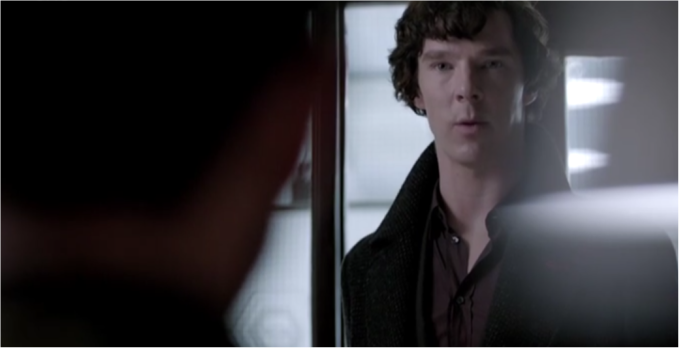
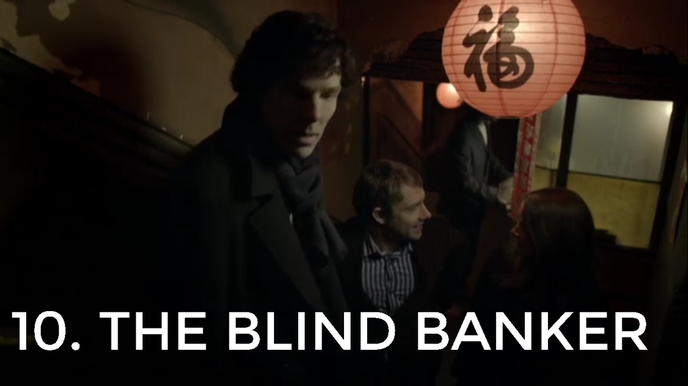
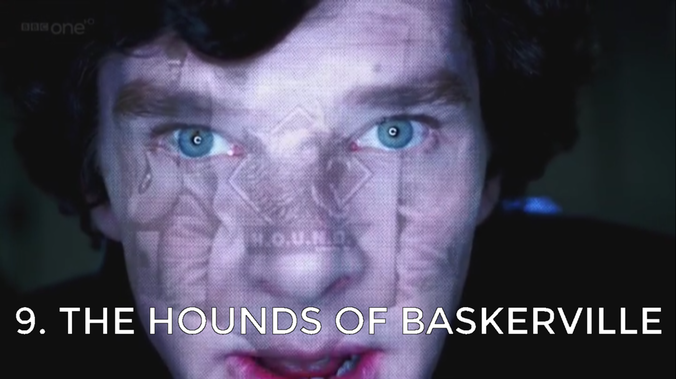
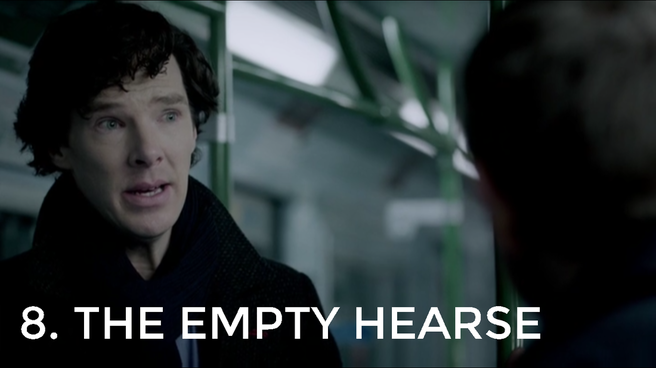
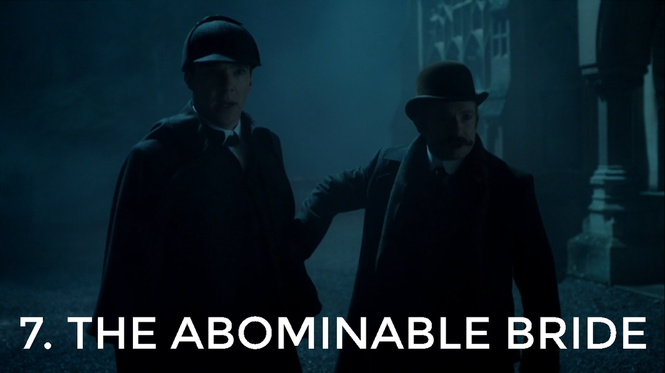
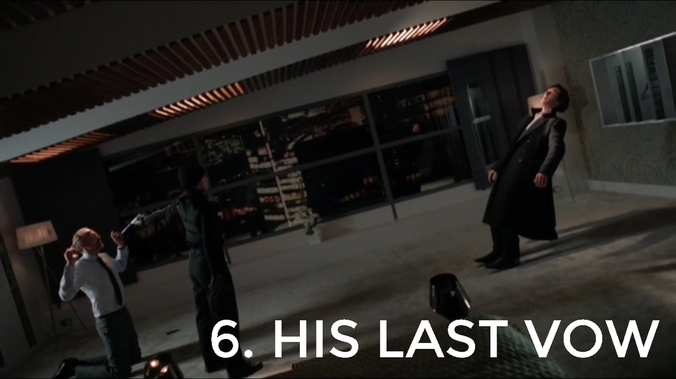
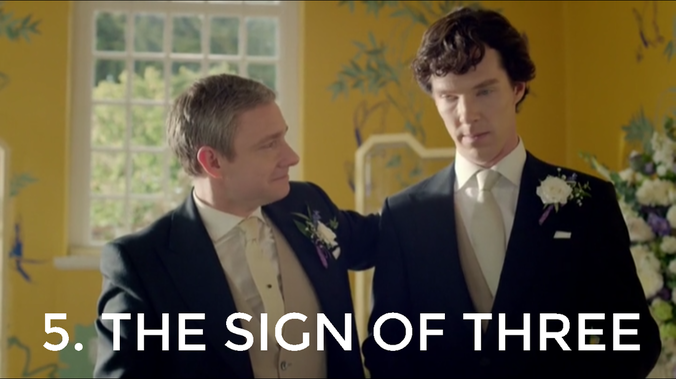
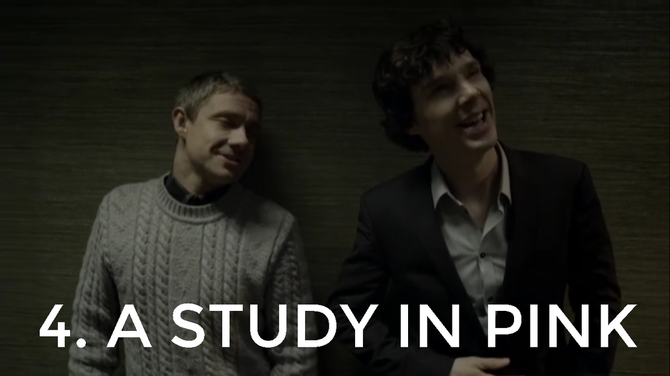
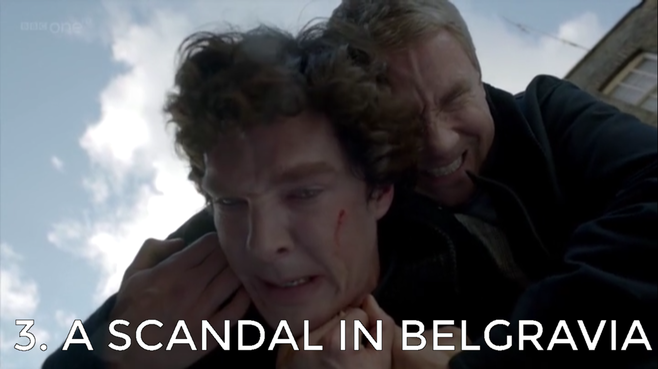
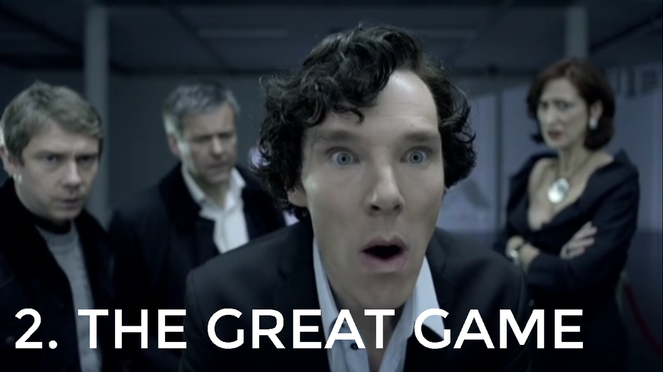
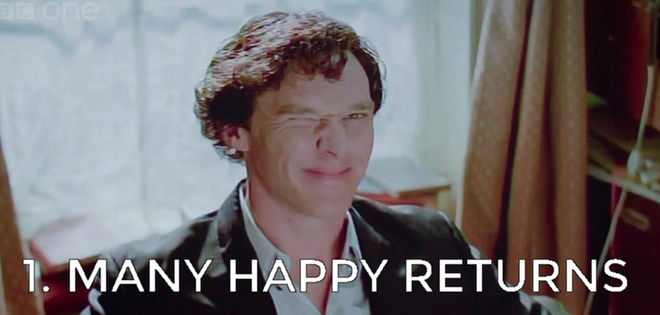
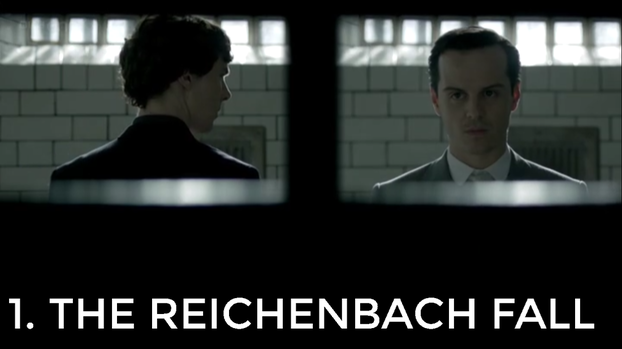
 RSS Feed
RSS Feed
